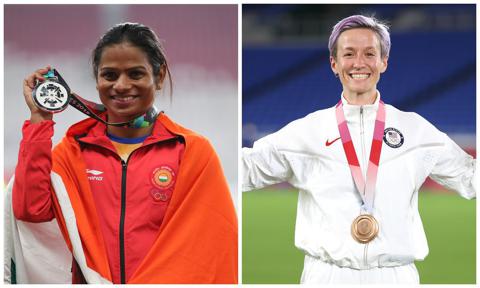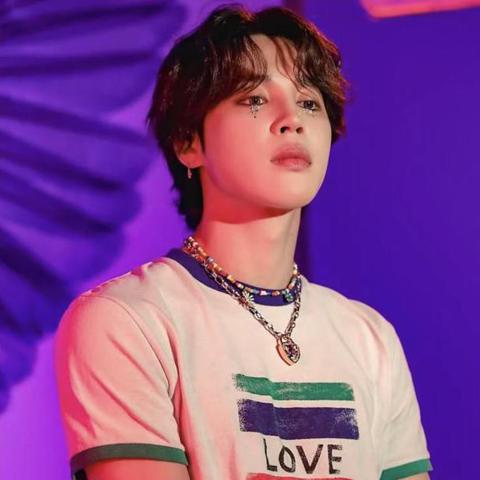
It’s always one step forward and two steps backwards when it comes to the rights of the LGBTQ+ community, whether it’s in India or anywhere in the world. Case in point, the recent bans on transgender women athletes in major sports.
Currently 18 states in the United States of America have banned trans girls and women from sports teams that align with their gender identity, while others have proposed similar legislations.
US soccer player Megan Rapinoe, who has always been a vocal supporter of equality in sports, brought up the 1972 legislation known as Title IX, that prohibits discrimination based on sex in schools. According to Rapinoe, this legislation is “transformational” but hasn’t guaranteed total equity for all student athletes, particularly for transgender people.
“I’m sure there’s a racial blind spot. I’m sure there’s an LGBTQ blind spot. I’m sure there’s an immigrant blind spot, all of that,” said Rapinoe, in an interview with Time, “Title IX is also charged with handling sexual assault and rape on college campuses. We know that that is continuing to be rampant and underreported.”
The athlete also spoke against the ban on high school athletes, saying that these laws aren’t just about athletes, but about people’s lives. “I think people also need to understand that sports is not the most important thing in life, right? Life is the most important thing in life. And so much of this trans inclusion argument has been put through the extremely tiny lens of elite sports,” she said. “Like that is not the way that we need to be framing this question. We’re talking about kids. We’re talking about people’s lives.”
Rapinoe pointed out that banning trans athletes is seldom based on evidence, but inherent prejudice and transphobia. “Show me the evidence that trans women are taking everyone’s scholarships, are dominating in every sport, are winning every title. I’m sorry, it’s just not happening,” she said.
Rapinoe’s claims are not unfounded. In April, former Harvard swimmer and the first trans man to compete in any National Collegiate Division 1 sport in the US Schuyler Bailar debunked the myth that trans women have an inherent advantage against cisgender women in sports. Bailar teamed up with the Human Rights Commision to create a campaign where he systematically broke down the ill-informed arguments that support these bans.
He noted that biological differences exist among all people by taking the example of US swimmer Michael Phelps who has a long wingspan, torso, and feet which have definitely played a part in him becoming the most decorated Olympian in history.
“They think that if they use this feminist argument of ‘protecting women’ that you’ll think you’re doing the right thing. But the reality is that if you want to protect women, you have to protect all women—transgender women included,“ said Bailar.
Closer to home, two-times Asian Games medallist and current national champion in the Women’s 100 Meters, Dutee Chand recently spoke up in favour of the inclusion of trans athletes who have been banned by international sports administration bodies.
Chand, who is also India’s first openly gay athlete, said that it’s unfair on the part of sports administrators to stop trans athletes from comepeting “just because others can’t digest theor success at the elite level”.
In an interview with Times of India, the ace sprinter said, “Everyone, irrespective of his or her gender, has their gender, has the right to play and compete. It’s the basic human principle.”
Chand added that she doesn’t see trans athletes having any unfair advantage over their cis competitors durign competitions. “They have already faced a lot of societal pressure and humiliation reaching where they are today. No need to make things difficult for them. Accept it as a god’s gift because what’s happening in an individual human body shouldn’t concern others. These athletes want to grow up like this, so let it be.”
In 2015, Chand became a vocal advocate for the issue of gender rights of athletes when she went against the World Athletics’ (then IAAF) draconian hyperandrogenism policy in the Court of Arbitration of Sports. The athlete was accused of being a ‘man’ after she failed the hyperandrogenism (male testosterone) test and was later subjected to a gender verification test by the Athletics Federation of India.
Chand has spoken up on the issue because last week, the International Swimming Federation voted to restrict transgender women athletes from competing in elite competitions, unless they began medical treatment to supress the production of testosterone before going through one of the early stages of puberty.
As Rapinoe pointed out, this is not just about sports but about people’s lives. According to Trevor Project’s 2022 National Survey on LGBTQ Youth Mental Health, 45 percent of the nearly 34,000 queer youth surveyed admitted that they had considered suicide in the past year. While the reason for that could be amongst many, the report found out that most of these young people were those who weren’t supported by social systems. It also found out that anti-trans legislations, like the bans on athletes, have a severe and direct impact on the mental health of these young LGBTQ+ people, with 83 percent trans and non-binary participants claiming that they’ve been fearful for their safety and health after these anti-trans political attacks.
Rapinoe summed what needs to be done succinctly when she said that the solution was simple. “We need to start from inclusion, period,” she said, “And as things arise, I have confidence that we can figure it out. But we can’t start at the opposite. That is cruel. And frankly, it’s just disgusting.”






